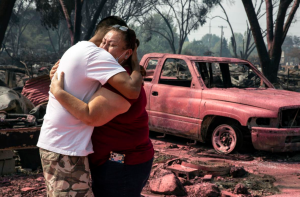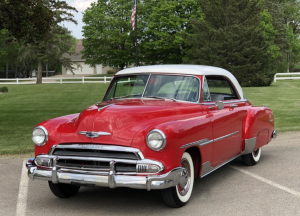Southern Oregon Wildfires
Southern Oregon Wildfires

In southern Oregon, most of us are used to wildfires hitting our forested slopes during the summers. However, 2020 was a firestorm to remember. Without warning, massive winds swept and fueled fires into neighborhoods leaving destroyed homes, businesses, mobile homes, and apartment buildings. The last count I can recall totaled around 2300 destroyed homes.
Let’s talk about what helped fuel the fire. Yard debris, overgrown vegetation, untrimmed and over hanging trees, and stacks of firewood next to a house are a wildfire’s best friend. You can help keep the danger at a lower level by examining where you live in regards to lowering the level of fuel around your premises.
If you should become homeless because of a fire, most home, renters, condo, and mobile home policies cover loss of the use of your residence. Loss of use coverage protects you in three different ways: it covers any increased living expense while your home is being rebuilt or restored up to 12 months. If you have a landlord policy you can receive reimbursement for the loss of your rental income, and it may also reimburse you for lost rental income or additional living expenses if a local authority prohibits you or your tenants from returning to your property. Many people in southern Oregon are thanking their lucky stars for having insurance policies. Since we’re likely to have fires again, I highly recommend picking up one of the above policies for yourself. They cost as little as a dollar a day, but they will make you feel peace of mind knowing you made a wise and prudent decision.
Let’s ban together as a community and create ways to keep those wicked fires from visiting us again. I firmly believe we can rebuild a safer, stronger southern Oregon if we put our minds and hearts together.
Jan Norby
Agent/Owner
Recent posts






